Over the past year, In Full Health collaborating organizations and health innovation leaders have shared their insights with the Learning & Action Community on our blog.
We are so honored to amplify these stories throughout the year. Their stories and insights have highlighted key topics surrounding health disparities, race, and the health technologies working to address them.
This Black History Month, here are just some of their key thoughts about Black health and identity collected from previous blog posts.
On Health Disparities
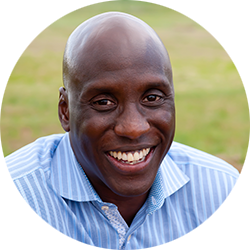
Kaakpema (KP) Yelpaala
Co-founder and CEO, InOn Health
My [prostate cancer] diagnosis made it even clearer to me why this work of connecting multicultural Black and brown populations to care is so important. I am trained in public health. I have a lot of access to information and, frankly, privilege in health care. And even then I was almost missed on screening.
The screening standard suggested that I be screened maybe 10 years from now — but also the data shows that Black men are two times more likely to die from prostate cancer than white men. I actually was very lucky that I had a primary care physician who decided to screen me early, on a whim. A big part of this story is access to information. We need more Black and brown folks to understand why they need to be screened and why they need to advocate for their own health when the health system doesn’t proactively engage them.
Read More
On Mental Health
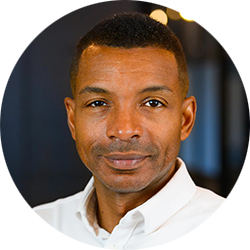
Kevin Dedner
Founder and CEO, Hurdle Health
At Hurdle Health, we talk often about mental health care for invisible barriers. And I think the most significant invisible barrier is the lack of cultural humility and cultural responsiveness in the current mental health care system, which is why we train our therapists in evidence-based techniques that help them improve their cultural humility and cultural responsiveness.
Fifty percent of ethnic minorities terminate therapy prematurely — and 33% of the general population terminates therapy prematurely. At Hurdle Health, many of our clients are minorities, so the fact that we are retaining people in therapy longer is really remarkable.
Read More
On Black Women and Breastfeeding
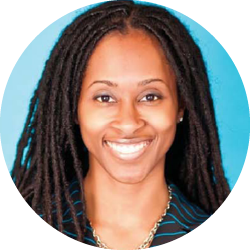
Nzinga Harrison, MD
Chief Medical Officer and Co-Founder, Eleanor Health
[At Eleanor Health], we have a safe space for our team members who identify as Black called Black Eleanor, which is an hour a month that we dedicate to anyone who identifies as Black to be together in a safe space — no agenda. We have our Black Lives Matter committee, which is responsible for holding the company accountable to our antiracism commitment. And we’re working to build out those same types of initiatives for other communities who have been historically marginalized.
Our goal is to create a sense of belonging for our team members and teach ourselves to have conversations around racism, oppression, and discrimination. Then, we can then have those conversations with our community members we’re providing services to, knowing that their experiences with those same forces affect their health.
Read More
On Intersecting Identities
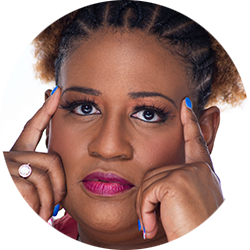
Kameryn Lee, MD, MSPH
Founder, The Radically Inclusive Consulting Collective
For me, my lived experience has been one of injustice. I am from rural eastern North Carolina, where a significant number of folks — especially Black folks — not only live in poverty but are in sub-optimal health. That experience and perspective partially helped to shape my decision to go into medicine.
But it’s my additional cross-section as a Black, transgender woman that helped to shape that work in a very specific way … I appreciate the unique ways that folks are being innovative with regards to health care delivery but in my opinion, if it can’t reach everyone, including those of us who are pushed to society’s edges — like me, a Black, transgender woman — then it doesn’t matter.
Read More
On Black Women and Breastfeeding
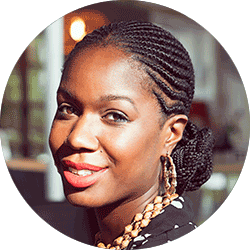
Joy Cooper, MD
Co-founder, Culture Care
As a Black physician, I had patients who were coming from 3 hours away in traffic to see me because I was a Black female doctor. And so I thought, “If you don’t need something that needs to be done physically — if you just wanted to talk to me — wouldn’t it be more convenient to do that virtually?”
Black breastfeeding is complicated because of the history and the legacy of Black breastfeeding in America … I think we still have to celebrate the resilience of Black breastfeeding.
Read More
On Health Literacy
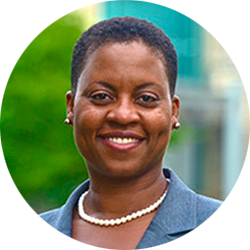
Lisa Fitzpatrick, MD, MPH, MPA
Founder and CEO, Grapevine Health
Grapevine Health, by intention, focuses on underserved Black and brown communities because they’re often left out of health innovation and health solutions. People with low background literacy tend to struggle the most with understanding health information … It was natural for a digital health media communication company to want to explain what was happening with the pandemic. We engaged underserved and frontline communities through virtual sessions and on-the-street engagement.
I also enrolled in a Moderna clinical trial because I wanted Black people to see that there were Black doctors who believed in the safety of the vaccines and the integrity of the clinical trial process. I chronicled that experience on video and we posted these on social media as well.
Read More
SUBSCRIBE
Stay in the loop about new blog posts from equitable health innovation leaders, helpful resources and tools to help you bring the Principles to life, upcoming events, and more by joining our email list.
SUBSCRIBE


Comments are closed.